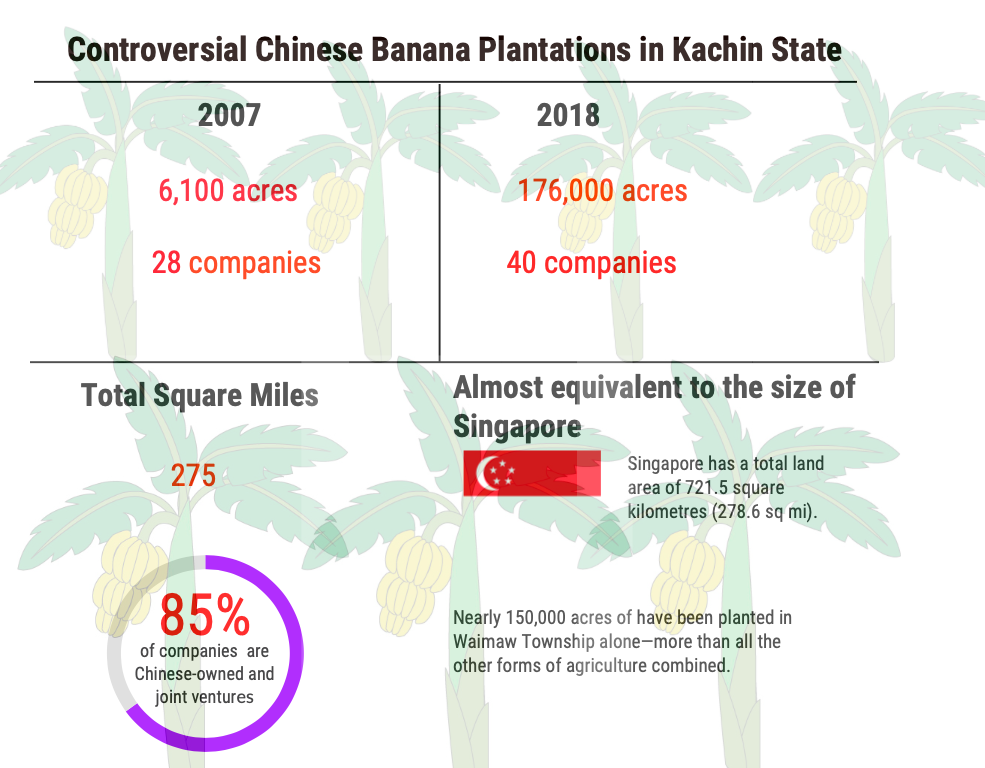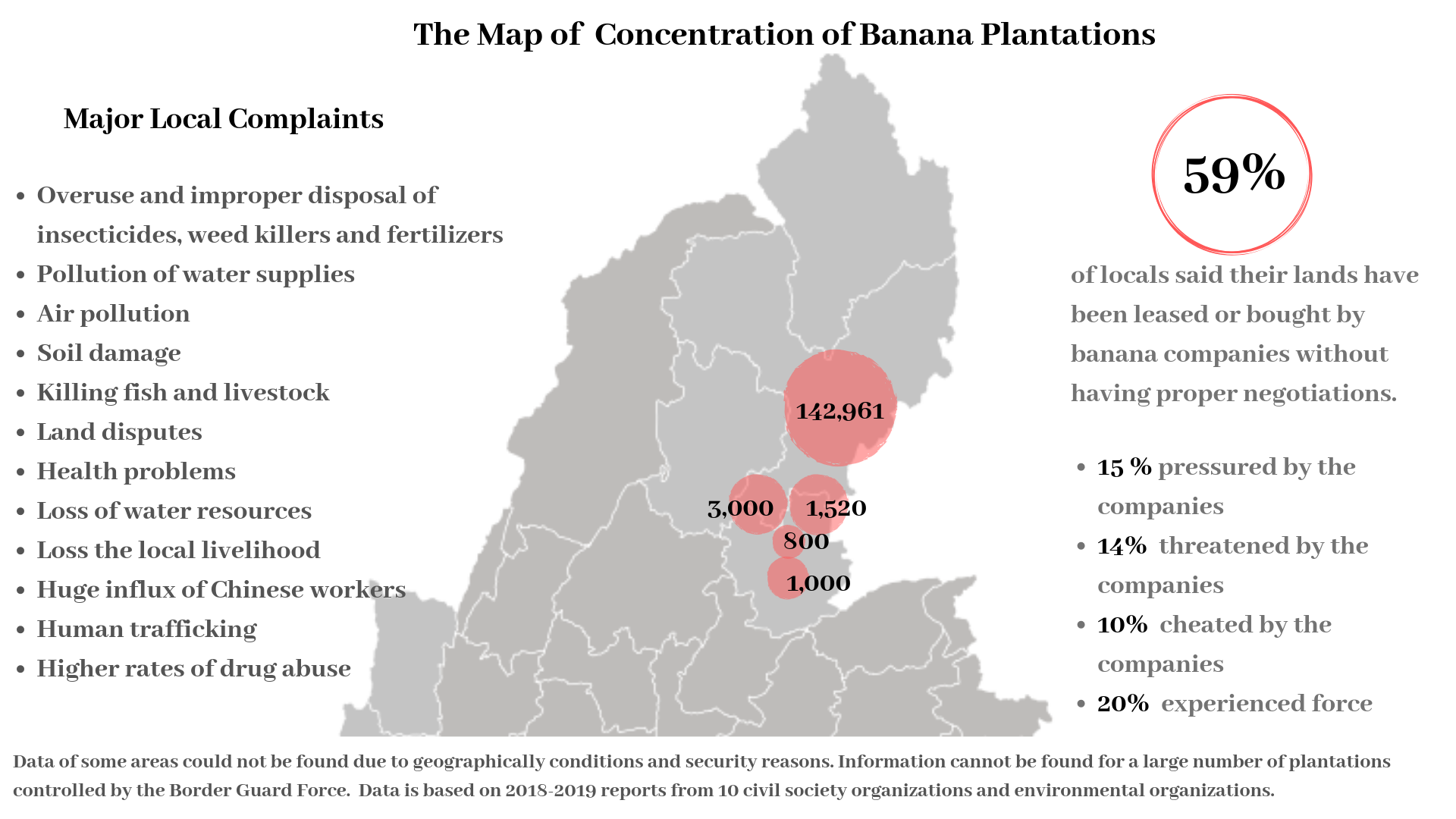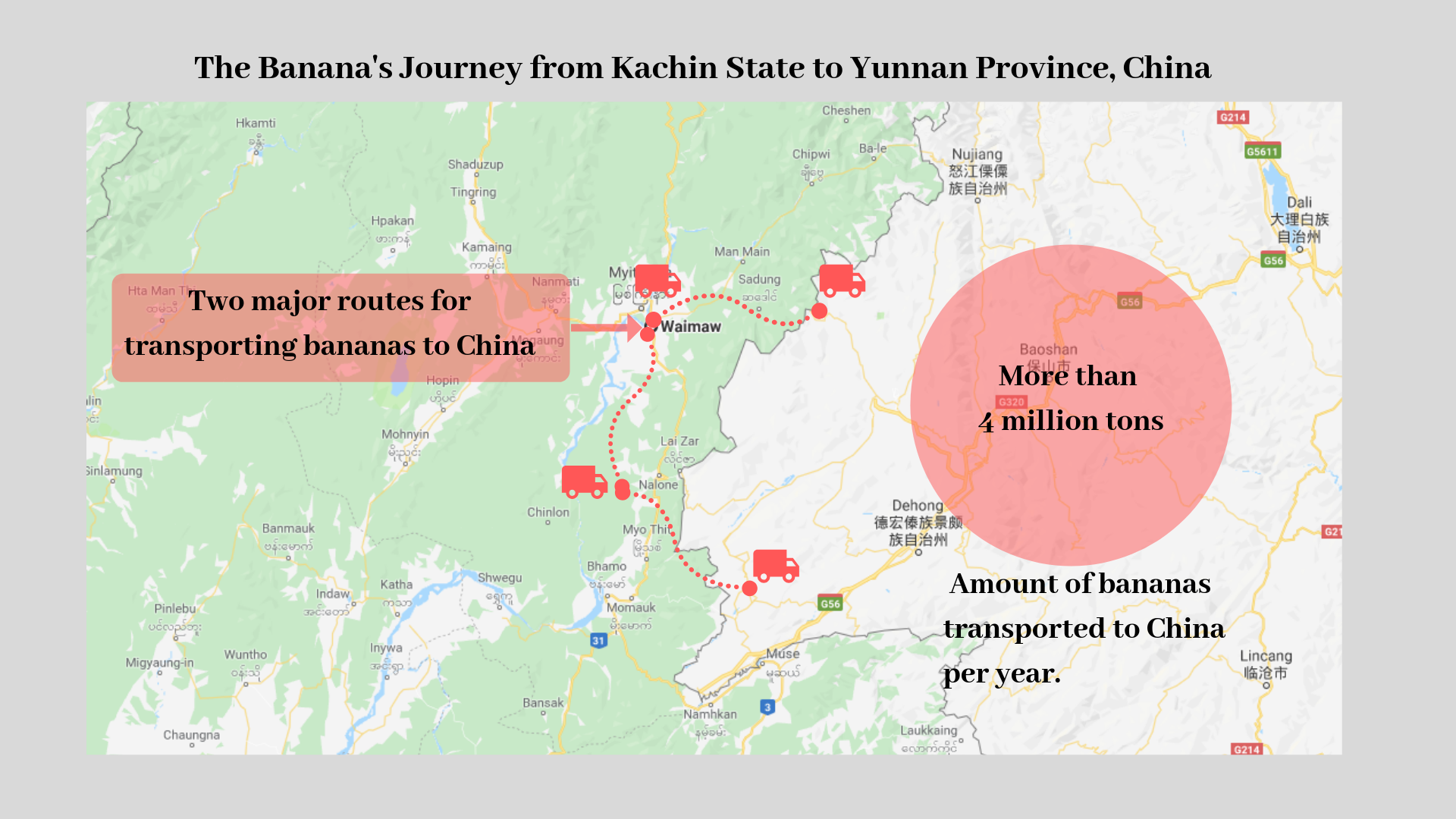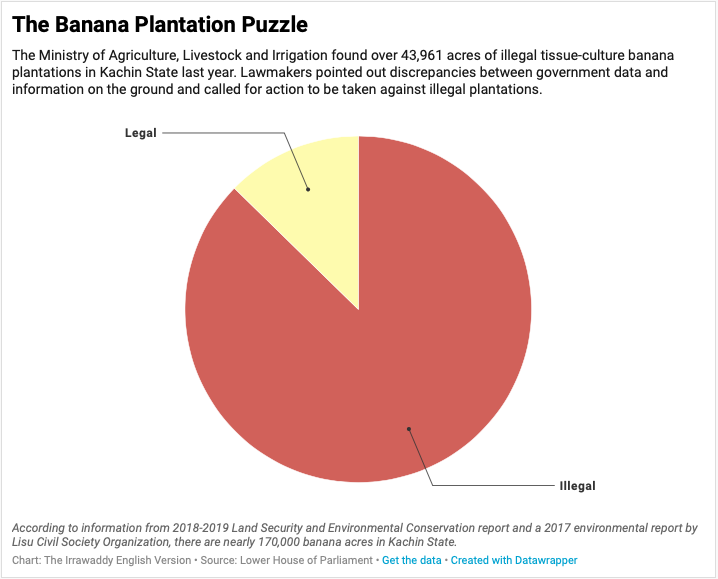YANGON—Chinese tissue culture banana plantations, banned from Laos and Thailand, came to war-torn Kachin State in 2007. For more than two years, controversial China-backed banana plantations have been facing backlash from local residents in Kachin State, where operators are accused of unfairly taking over lands previously leased from the authorities by locals, many of whom were displaced by conflict.
As the plantations expand, villagers displaced by fighting and living in camps for internally displaced persons (IDPs) are increasingly concerned that their land may be occupied, and that they will not be able to farm when they return home.
The area occupied by tissue culture banana plantations has been expanding rapidly in Kachin State, particularly in Waimaw Township close to the state capital of Myitkyina, and most of the plantations are operated by Chinese companies.
According to the State’s agriculture ministry, there are more than 60,000 acres of banana plantations. However, civil society organizations have recorded more than 170,000 acres across Waimaw, Bhamo, Shwegu, Mansi, Momauk and Dokphoneyan townships in Kachin State. Local lawmakers have also pointed out the discrepancy between government data and information on the ground and are calling for action to be taken against those behind the cultivation of tissue-culture bananas.
According to a 2017 environmental study by the Lisu Civil Society Organization, Chinese companies have been planting tissue culture bananas since 2012 in Kachin State’s Special Region 1, which is under the control of the government-allied New Democratic Army-Kachin militia. It said the plantations have been gradually expanding to the other townships.
More than 50 farmers from multiple villages in two townships of Myitkyina District on Wednesday told the media how the China-backed plantations were causing suffering among the local communities. The famers also said they have been threatened by the Chinese companies for opposing the bananas plantation near their villages.
According to environmental reports by civil society organizations, the companies are using insecticides, weed killers and fertilizers and disposing of them carelessly. This has led to the pollution of water supplies in these areas, in turn causing soil damage and killing fish and livestock.
Here, The Irrawaddy illustrates and maps the expansion of banana plantations in Kachin State.




(This data is based on information from Myanmar’s Ministry of Agriculture, Livestock and Irrigation, the 2018-2019 Land Security and Environmental Conservation report conducted by a coalition of 11 civil society organizations and a 2017 environmental report by the Lisu Civil Society Organization.)

















